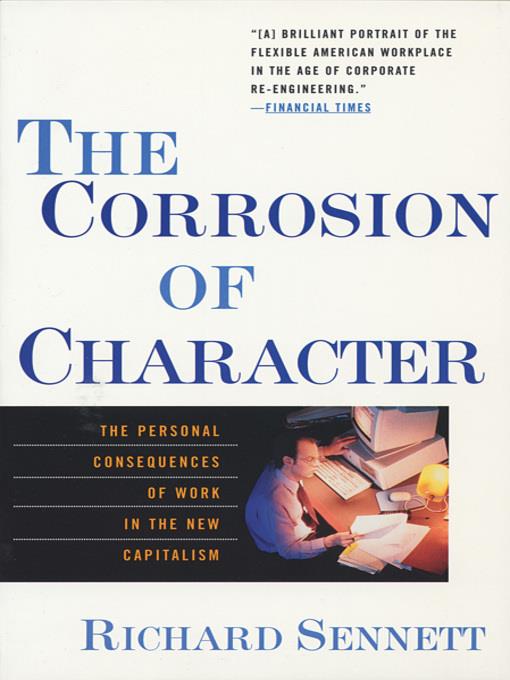
The Corrosion of Character
The Personal Consequences of Work in the New Capitalism
- اطلاعات
- نقد و بررسی
- دیدگاه کاربران
نقد و بررسی

Starred review from December 29, 1997
The American company today ostensibly offers a more humane environment than in the era of "Fordism," when work on the assembly line had a deadening, routine character. However, Sennett, professor of sociology at New York University and the London School of Economics, believes this improvement is illusory. His argument is that the modern workplace--with its emphasis on short-term, episodic labor; projects and flexibility--does not allow people to shape their experiences or build a coherent narrative of their lives. Most important, the new adaptability in business militates against the formation of character. Character depends on stability for virtues such as loyalty, trust, commitment and mutual helpfulness to develop. And rather than giving workers greater freedom, the flexibility model allows another kind of power to be imposed from the top: from 1980 to 1995, between 13 million and 39 million workers became unemployed owing to downsizing. Even flextime contributes to the fragmentation and disorder, and teamwork only emphasizes "mutual responsiveness rather than personal validation." Sennett makes his case in well-crafted prose with references not just to luminaries such as Adam Smith, Diderot, Nietzsche and Rousseau, but to the immediate experiences of blue-collar workers and folks in bakery shops and bars. He challenges the reader to decide whether the flexibility of modern capitalism offers a better context for personal growth or is merely a fresh form of oppression.




دیدگاه کاربران